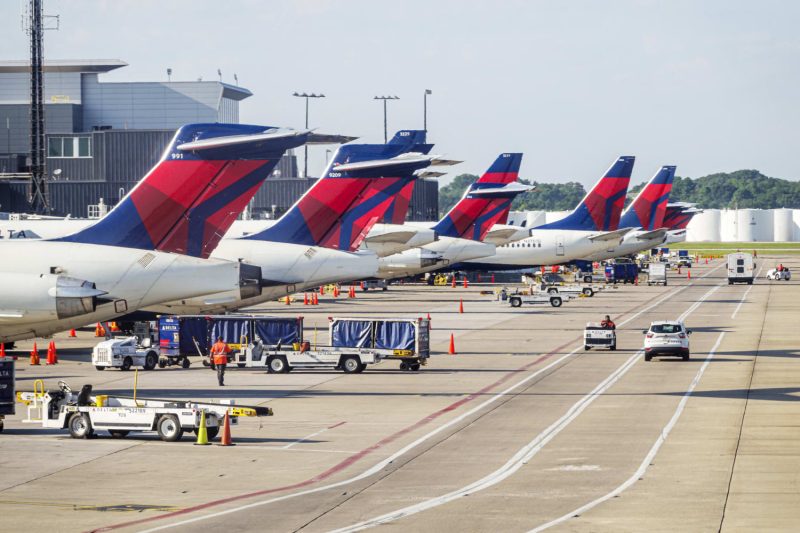Delta Cancels Hundreds More Flights as DOT Opens Probe
The latest series of flight cancellations by Delta Air Lines has sparked concern among travelers and aviation regulators alike. With hundreds more flights being axed, passengers are left frustrated and stranded at major airports across the United States. Amid this chaos, the Department of Transportation (DOT) has announced that it will be opening an investigation into Delta’s recent disruptions, raising questions about the airline’s operational reliability and customer service standards.
Delta’s decision to cancel an additional batch of flights comes on the heels of previous disruptions that plagued the carrier in recent weeks. The airline has attributed these cancellations to a confluence of factors, including staff shortages, weather-related issues, and the ongoing global supply chain challenges. However, such explanations offer little solace to passengers who find themselves grappling with sudden flight cancellations and delays, often without adequate information or support from the airline.
As frustrated travelers take to social media to vent their grievances and share their harrowing experiences, Delta’s reputation is undoubtedly taking a hit. The airline, known for its extensive route network and premium services, now faces a PR crisis that threatens to undermine its standing in the fiercely competitive aviation industry. With rivals closely watching Delta’s missteps, the airline must swiftly address the root causes of its operational breakdowns and restore passenger confidence before irreparable damage is done to its brand image.
The DOT’s decision to launch an investigation into Delta’s recent flight cancellations signals a growing scrutiny of airlines’ operational practices and their obligations to passengers. As regulatory authorities delve into the circumstances surrounding the disruptions, they will be looking to ascertain whether Delta adhered to the required standards of passenger care and communication during the flight cancellations. Any lapses in compliance could result in significant penalties for the airline, further tarnishing its reputation and bottom line.
In response to the escalating crisis, Delta has announced measures to mitigate the impact of the flight cancellations on affected passengers. These include rebooking options, refunds, and travel vouchers to compensate for the inconvenience caused by the disruptions. However, it remains to be seen whether these remedial efforts will be sufficient to mollify disgruntled travelers and salvage Delta’s reputation in the aftermath of the chaos.
Ultimately, the recent spate of flight cancellations by Delta serves as a stark reminder of the fragility of the airline industry in the face of unforeseen disruptions. As travelers continue to navigate the uncertainties of air travel in a post-pandemic world, they are increasingly vigilant about airlines’ responsiveness to crises and their commitment to passenger welfare. For Delta and other carriers, the ability to weather such operational challenges while maintaining a high level of customer service will be crucial in securing the trust and loyalty of travelers in the years to come.
In conclusion, as Delta grapples with the fallout from its recent flight cancellations and the DOT’s investigation looms large, the airline finds itself at a critical juncture. How it navigates this crisis, addresses the concerns of affected passengers, and implements lasting reforms will determine its ability to emerge stronger and more resilient in the competitive aviation landscape. The road ahead may be rocky, but with proactive measures and a renewed focus on customer satisfaction, Delta has the opportunity to turn this challenging chapter into a platform for positive change and growth.
